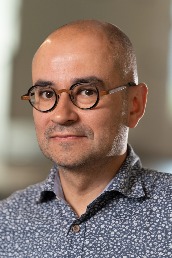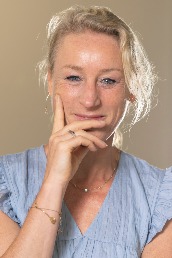FAR Grant: how relational interfaces impact audit quality

Dennis Veltrop, Reggy Hooghiemstra and Floor Rink received a research grant of approximately € 510.000 from the Foundation for Auditing Research (FAR) with € 265.000 matching from FEB, this amounts to a total grant of € 775.000 to fund a six year thematic research project in cooperation with Dutch audit firms.
Research objective
Auditors provide assurance that a firm’s financial statements are free from material misstatements. Many parties rely on the financial statements of organizations for their information. This means that solid auditing is key, but there are numerous instances where audit quality has proven insufficient. Corporate scandals, like Wirecard, show that auditors are not always able to deliver high-quality audits. Most of the attention goes to the mistakes auditors have made, but this is only one part of the root causes of audit failures. Dennis Veltrop: “The central thesis of our project is that low audit quality may already be determined before the auditor starts with the audit. I realize that this is a bold statement, but the point we are making is that key governance actors within organizations play an important role for audit quality.” A more nuanced investigation is needed to understand how interactions between the auditor and key governance actors at the top of organizations - such as CEOs, CFO’s, boards - jointly shape audit quality. Doing so increases not only the understanding of drivers of audit failures, but will also teach us how to prevent audit failures in the future.
The realization that interactions between key governance actors themselves impact audit quality opens up the possibility for new research streams. Reggy Hooghiemstra: “We distinguish two types of audit interfaces, namely the interfaces that take place during the audit between the auditors and key governance actors, called ex-post interfaces, and the interfaces that take place before the start of the audit between governance actors themselves, called ex-ante interfaces. Simply stated, it will be more difficult to attain high audit quality if the auditor is faced with uncooperative directors or top managers who do not see the added value of an audit to begin with.”
Research set up
This thematic research program consists of three main phases and is built on a full cycle research approach that will be carried out over the next 6 years. All phases are executed in close cooperation with several Dutch audit firms. These audit firms have agreed to provide proprietary information needed to study the impact of interfaces between the auditor and key governance actors. The project starts with an exploratory research phase using qualitative research methods. Phase 2 examines which processes play a role within the ‘ex-post interfaces’. In this phase, the relational mechanisms that take place after the auditor has been appointed will be studied. Whereas phase 1 is exploratory in nature, phase 2 extends and tests these exploratory insights through both fundamental and more applied methods. Veltrop explains: “Within the team we have experience as auditors, access to boards through the board evaluations we carry out via boardresearch.org , as well as experience with archival, interview, survey and experimental research methods.”
Phase 3 examines exante interfaces, and focuses on the mechanisms that drive the client’s stance towards a high-quality audit, indicating that they take place before the auditor has been appointed. In addition, the final phase will study how the ex-ante and ex-post interfaces collectively impact audit quality in a time-layered manner. Floor Rink: “In essence, we maintain that from start to finish, so from the auditors’ appointment to the auditors’ final audit report, social dynamics determine whether or not the audit will be of highquality.” Veltrop adds “I’m not objective, but this is going to be a really cool research project with important practical insights. We are thankful to FAR for providing the opportunity to do this.”
Societal relevance
Rink: “Our research project feeds into current practical discussions about the role and functioning of the auditor in the wider corporate governance context. While both academics and practitioners acknowledge that auditors do not operate in isolation, to date less is known about the relational interplay between auditors and key governance actors, including client management and the audit committee. Through this thematic research project, we are able to identify unexplored relational mechanisms that fundamentally shape audit quality.” The results from this program of research will directly be beneficial to the audit practice and will help to strengthen the auditor’s position. Veltrop: “Knowing what drives the client’s stance towards a high-quality audit to begin with is important as this sets the stage for a high-quality audit.”

Dennis Veltrop - Associate Professor
“I focus on governance and auditing from a behavioral perspective. My research is at the crossroad between governance, auditing, and social psychology. In this research project, I will take the role of principal investigator and will act as the central coordinator with FAR and the participating audit firms.
I believe the most impactful research draws from both rigorous academic research and views from practice. I have worked as auditor in the past before entering academia and as part of my research I have been involved in a large number of board evaluations (see boardresearch.org). Listening to the issues auditors and directors face in their work is really important.”

Reggy Hooghiemstra - Professor
“My research focuses on corporate governance in the broadest sense and covers corporate narrative reporting, executive compensation, boardroom dynamics as well as the effects of culture on reporting. I add an interdisciplinary focus to auditing, financial reporting and governance. I have worked as an auditor as well. In addition to my academic input, I am also very much attuned to the practical relevance of this thematic research and the implications for audit and financial reporting rules and legislation.”

Floor Rink - Professor
“My research interests are focused on intergroup identity theory and work-related phenomena that involve interrelational dynamics. For example, I have studied how teams can overcome distrust in diverse group settings and how new team members can best communicate their intentions. I also apply these fundamental processes to explore how they affect boardroom interactions and supervisors employed at external supervisory agencies. I am originally trained as a social psychologist and thus can add an indepth insight on how fundamental psychological processes and interactions affect governance and auditing.”
The foundation for Auditing Research
The audit profession is undergoing significant changes in respect of expectations and demands. The Foundation for Auditing Research (FAR) focuses on enhancing the knowledge of what makes a good audit today and on sustainably improving audit practices. FAR’s research agenda is focused on relevant and rigorous academic research into audit quality drivers to inform the audit profession in its further development and improvement of audit quality. FAR believes that research has the potential to identify those factors that influence audit quality in daily practice. To that end, FAR supports projects using multiple research approaches and methods to arrive at a balanced, evidence-based perspective of informing the continuous improvement of the audit practice as well as the public debate and policy making.
For more information, please contact Dennis Veltrop, Reggy Hooghiemstra or Floor Rink.

